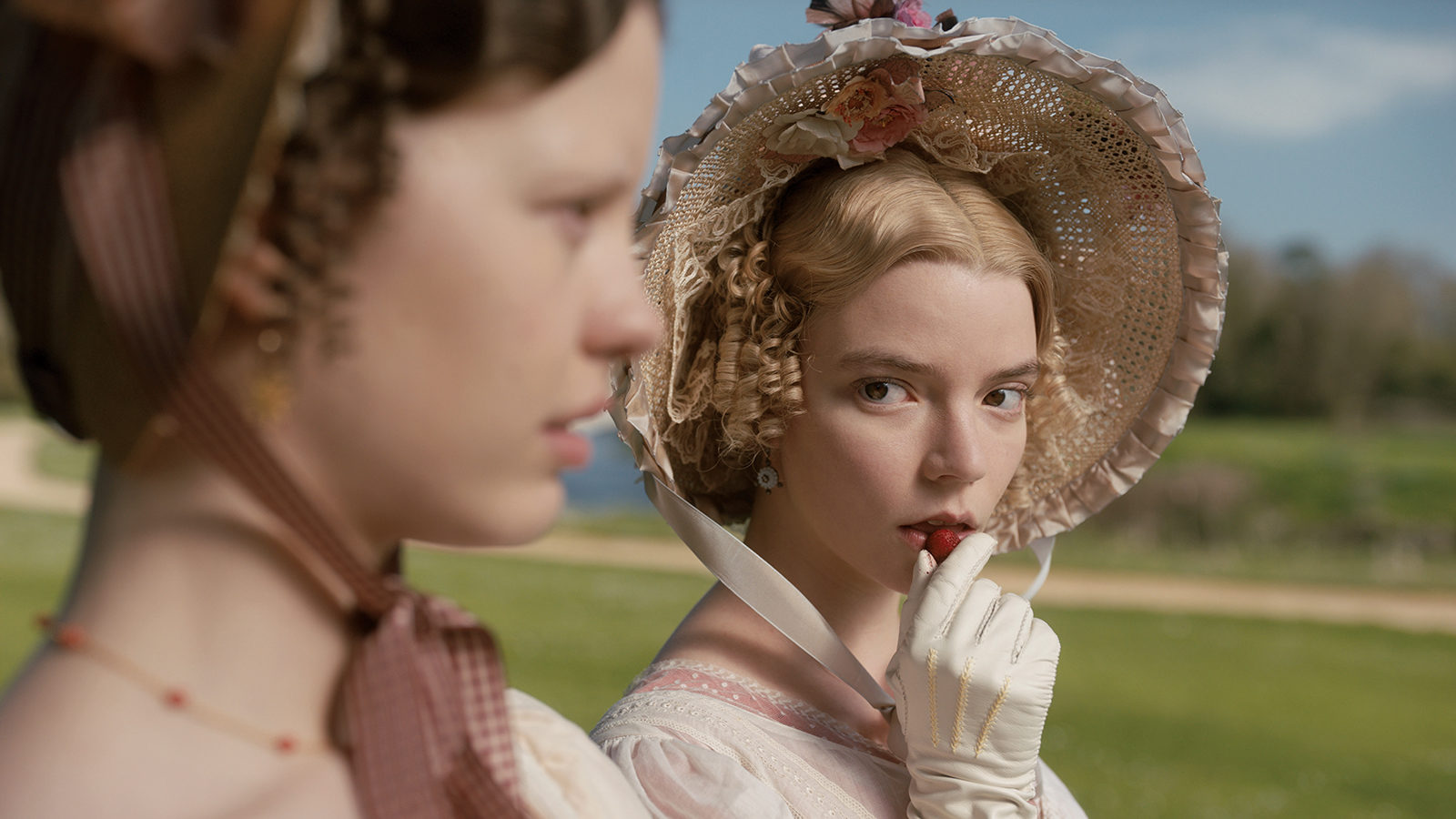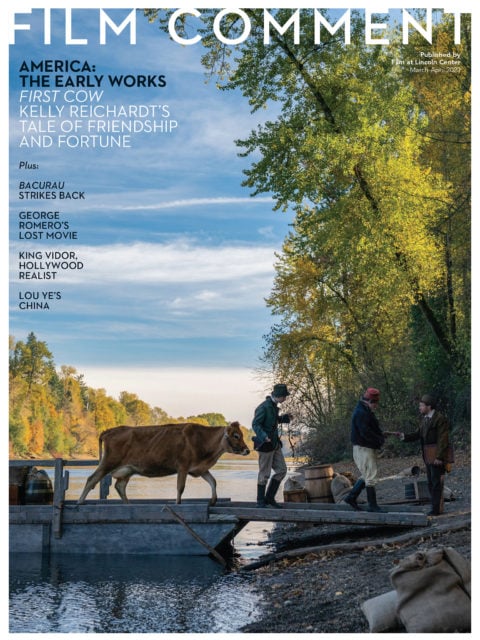By Phoebe Chen in the March-April 2020 Issue

The Big Screen: EMMA.
(Autumn de Wilde, UK, Focus Features, Opening: February 21)
Period films set before the mid-19th century often suggest that candle flame and streaming daylight are enough to shoot and lift the deep shadows of a preelectric world, and even those that sidestep a Barry Lyndon–level commitment to natural luminescence tend to go easy on the fill light. Not so in Autumn de Wilde’s debut theatrical feature, a new adaptation of Emma, which seems to pull its characters from our flesh-and-bone dimension and trap them in a Regency England simulation, where landscapes flatten into Gainsborough pastorals and even sunlight looks like the uncanny invention of a force just outside the frame.

From the March-April 2020 Issue
Also in this issue
Unsurprisingly, de Wilde is a seasoned commercial photographer and director, drawing the mood for EMMA. unreservedly from her recent work for fashion house Rodarte. The adaptation is also the screenwriting debut of author Eleanor Catton, who visits the 19th century with the same prodigious eye she brought to her Booker Prize–winning novel, The Luminaries. In this fondant-draped retelling, Emma (Anya Taylor-Joy) remains hot, smart, rich, and meddling, adopting her new friend and matchmaking project, Harriet (Mia Goth with a Brittany Murphy pout), while denying the longtime love at her doorstep, Mr. Knightley (Johnny Flynn). Taylor-Joy plays Emma’s lived-in snobbery as a collection of loaded tics—total dismissal in a raised brow and a tilt of the head; faint distaste in a quick double-blink and slight dip of the chin. Once Emma locks onto wily local vicar Mr. Elton (Josh O’Connor) as the ideal match for Harriet, so begins the puppeteering.
Austen’s social world already brims with the landed gentry’s household paraphernalia and rules of etiquette, but its reanimation by cinematographer Christopher Blauvelt and costume designer Alexandra Byrne beguiles through not rococo excess but mesmerizing specificity. There’s some strange power in visuals that compel this much precision of language: a yellow so striking it has me juggling “butter,” “canary,” and “dandelion.” Every shot is a typology of pastels and calls for a log of the tactile: rippling velvets, diaphanous cravats, plumed hats that sit like clouds on blonde corkscrew curls.
Even EMMA.’s sound design plays into its pointed “too much”-ness. The busy score is ubiquitous to the point of distraction, and Austen’s clause-heavy dialogue flies out in single-breath missiles during battles of wit and caustic monologues. Emma charms because she is so articulate, an easy winner in a setting where palaver and comportment are social currency. But even as it irks, this sonic glut sets a stage for Mr. Knightley’s famous confession— “If I loved you less, I might be able to talk about it more”—which makes the case not for silence as profound, but for love as a gentle displacement of self. In their sudden speechlessness, this usually articulate duo make room for one another.
And there it is: I wonder if de Wilde’s adaptation isn’t ultimately about the incoherence of making a self. For all her good intentions, Emma mistakes the narcissistic pleasure of authoring another’s happiness for the altruism of helping a friend find love. It’s a delusion happily maintained by the devotees who orbit her good fortune, bolstering this version of a best self in a sugared fantasy. Tellingly, the scene before Emma’s pivotal realization that her naïvete might veer into cruelty is one in which praise is lavished on her in uncomfortable excess, hyperbole that briefly bursts the echo chamber. It’s the sense of hermetic idyll that makes EMMA. feel so thoroughly of-the-moment, the Instagram algorithm’s hall of mirrors switched out for a tight circle of bonnet-sporting sycophants. Doubling down on this aesthetic, de Wilde has made a film that knows it charms and amuses with just how much it crowds its perfect frames.
Phoebe Chen is a writer and grad student living in New York.







